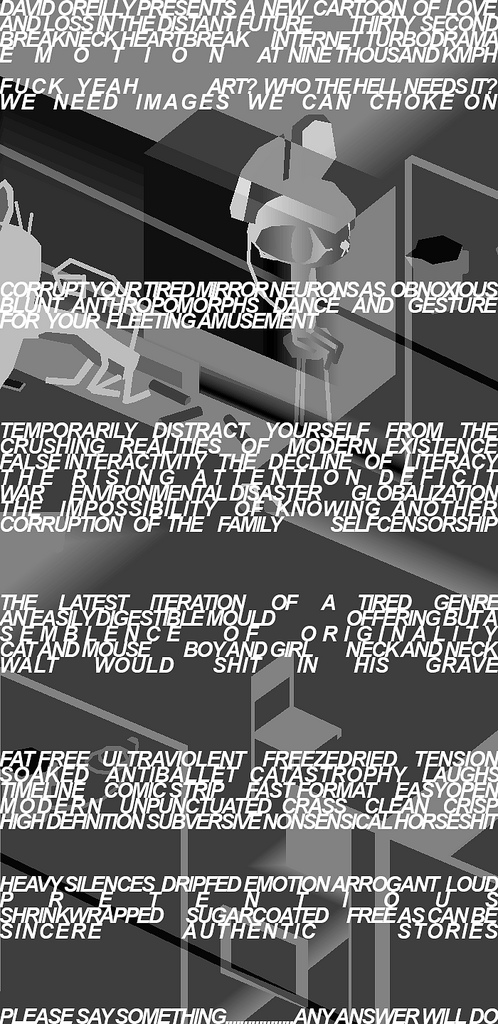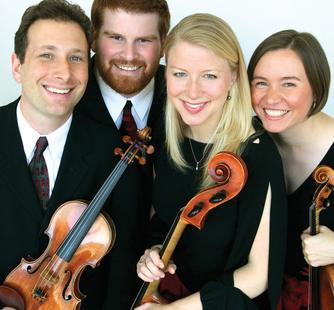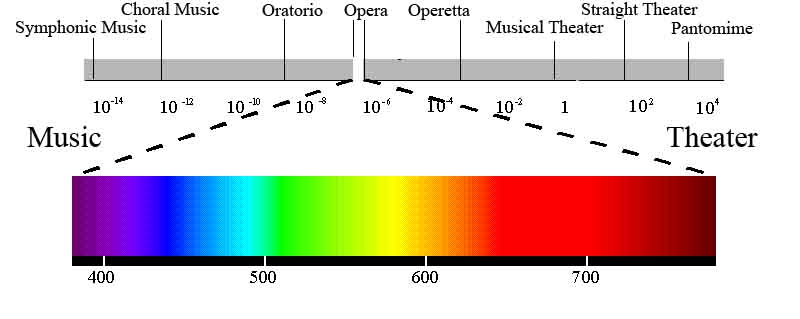Newsflash: Crappy Movie Wins an Oscar
 Yeah. I know it’s not news. I’m used to the best film not winning, but it really galls me when the WORST film nominated gets the prize. Sure, none of the nominated films were all that great, but jeesh, what was the Academy thinking?
Yeah. I know it’s not news. I’m used to the best film not winning, but it really galls me when the WORST film nominated gets the prize. Sure, none of the nominated films were all that great, but jeesh, what was the Academy thinking?
Logorama is really the best animated short film of the year?
Heck, when I saw it I couldn’t believe it was even nominated. I mean, really? This poorly crafted one-note gag filled with drooling dialogue and despicable characters (actually, I can’t even call them characters, since that would imply that some effort at characterization was apparent) was almost unwatchable. There was one high concept “we create a world constructed entirely of LOGOs! Get it?! It will be like Where’s Waldo but with trademarks. Oh how clever we are.” But they skipped the part where they found some compelling reason for this world to exist or why we would want to be there. Or develop anything resembling characters we should care about. Or any reason for us to be invested in any outcome. Or any sense of actions having any consequence at all. It’s just a random smattering of profanity, violence, and “oh look, we can use a Stop and Shop logo as a traffic light! Where’s my MacArthur grant?”
So to do my part to banish the bad juju surrounding this collective lapse of reason, I’d like to share a 10 minute animation that is a lovely antidote to the 15 minutes of screen poop that won the Oscar.
| leave a comment |




